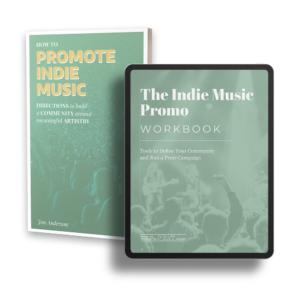This week, I want to talk about something utterly mind-blowing that will dramatically upgrade how you promote your music.
Hold onto your socks because they’re about to be blown off…
You should track what you’re doing.
Crazy, right?
As some business guy famously said, “What’s measured gets improved.” It’s totally true.
But I haven’t met a single artist who’s tracking what they’re doing to promote their music outside of keeping a vague record of their feelings. Like, “Eh, I tried a playlist campaign and I think it was kind of a scam,” or, “I just post a lot on social and it seems to work.”
(On further reflection, this is not totally true. A few artists I’ve worked with are super into tracking Facebook ads. But it is true that nobody I’ve worked with is tracking everything they should be.)
Look, I’m not really hating. I’m actually the worst at this. I have two default modes of operation:
1) Say I’m going to do something and then forget to do it.
2) Do something and then forget that I did it.
It wasn’t until I started working at a marketing agency that I had the “measure everything” mentality drilled into me. In other words, I started tracking the marketing I was doing because I would’ve gotten fired if I didn’t.
Turns out, it was incredibly helpful.
Here’s what I recommend.
1. Take stock of every platform you have / care about.
I’m talking social media channels, Spotify, your website… that stuff.
2. Identify the single most important metric that signifies success on each platform.
On most social channels, this is probably followers. On Spotify, I’d argue that it’s followers, too (as opposed to streams). But this is a soapbox for another time.
The key here is that you probably don’t need to get overly complex. It’s easy to get lost in the details of data, but most of the time, you just need a high-level view you can actually act on.
3. Create a Google Sheet and track each metric each month.
Set yourself a reminder so that you actually keep this updated.
There are two benefits to doing this.
First, by keeping these things top-of-mind, you’ll inevitably find you generate better results. This is for the same reason that you’ll run a mile faster if you’re timing yourself.
Second, by tracking when things change, you’ll be able to spot patterns. Let’s say you run a Playlist Push campaign and don’t see a significant increase in your Spotify followers. Don’t run the campaign (at least in the same way) again.
As you gather more data, you’ll spot more patterns. You’ll find what tactics work for you. Once you find what works, you can double down.
And over time, your marketing will improve and you’ll build more and more community around your artistry.
It’s simple. Almost too simple.
But hey, it works.

